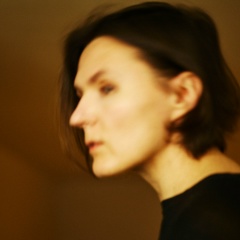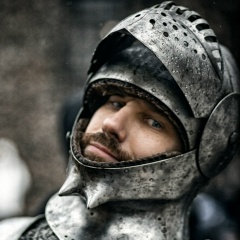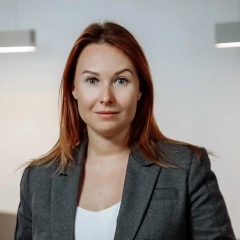Русская культура «серебряного века» (век этот, впрочем, длился всего четверть столетия) рождалась в разговорах, беседах — откровенных, свободных, вскрывавших заветные мысли. В беседах этих, в которых по каким-то особым законам духа должно было быть не меньше трех собеседников, рождались новые мысли, новые «откровения». Беседуя, человек формулировал, оттачивал мысль, прокладывал дорогу для новых мыслей. Полная свобода в этих разговорах была условием их плодотворности. Отнюдь не случайно с 1928 г., с приходом к власти Сталина и его диктатуры над умами и душами, начались гонения именно на кружки интеллигенции, на их встречи и на их беседы.
«Русские разговоры», длительные, за полночь, — типичная и очень плодотворная черта русской культуры XIX — первой четверти XX вв.
В своих воспоминаниях мне хотелось бы рассказать о том, чем жила думающая русская молодежь в эти годы, конечно, через узкую «щель» моего личного опыта. Я не вел записок, кроме тех, которые были сделаны на Соловках и сразу по возвращении в Ленинград. Не могу уже сейчас точно восстановить даты. Что помню, то помню.
Есть принципиальное различие в том, как начинались кружки в 20-е годы и как возникают ученые общества сейчас. Тогда достаточно было найти временное помещение для заседаний, чтобы назначить лекцию, доклад, открыть дискуссию. Если появлялась серия выступлений или спорный вопрос растягивался на несколько заседаний, иногда не очень ясных — кто их созывает, — появлялось и желание окрестить себя и завести книгу протоколов. Комната в квартире, зал школьного театра Тенишевского училища, учительская комната в школе, оповещение от руки написанными объявлениями (а чаще друг через друга) — были вполне достаточными.
Сперва потребность — потом скромное «оформление». Сейчас, в наши дни, нечто совершенно противоположное: прежде всего придумывается название, изыскиваются средства, утверждается штат и т. д. Названия — самые «высокие» и ранг не ниже лицея, колледжа, университета, академии и т. д.
Одна из целей моих воспоминаний — развеять миф о том, что наиболее жестокое время репрессий наступило в 1936–1937 гг. Я думаю, что в будущем статистика арестов и расстрелов покажет, что волны арестов, казней, высылок надвинулись уже с начала 1918 года, еще до официального объявления осенью этого года «красного террора», а затем прибой все время нарастал до самой смерти Сталина, и, кажется, новая волна в 1936–1937 гг. была только «девятым валом»… Открыв форточки в своей квартире на Лахтинской улице, мы ночами в 1918–1919 гг. могли слышать беспорядочные выстрелы и короткие пулеметные очереди в стороне Петропавловской крепости.
Не Сталин начал «красный террор». Он, придя к власти, только резко увеличил его, до невероятных размеров.
Д.С. Лихачёв "Воспоминания" "О красном терроре".
Т.И. Довольно интересное свидетельство.
«Русские разговоры», длительные, за полночь, — типичная и очень плодотворная черта русской культуры XIX — первой четверти XX вв.
В своих воспоминаниях мне хотелось бы рассказать о том, чем жила думающая русская молодежь в эти годы, конечно, через узкую «щель» моего личного опыта. Я не вел записок, кроме тех, которые были сделаны на Соловках и сразу по возвращении в Ленинград. Не могу уже сейчас точно восстановить даты. Что помню, то помню.
Есть принципиальное различие в том, как начинались кружки в 20-е годы и как возникают ученые общества сейчас. Тогда достаточно было найти временное помещение для заседаний, чтобы назначить лекцию, доклад, открыть дискуссию. Если появлялась серия выступлений или спорный вопрос растягивался на несколько заседаний, иногда не очень ясных — кто их созывает, — появлялось и желание окрестить себя и завести книгу протоколов. Комната в квартире, зал школьного театра Тенишевского училища, учительская комната в школе, оповещение от руки написанными объявлениями (а чаще друг через друга) — были вполне достаточными.
Сперва потребность — потом скромное «оформление». Сейчас, в наши дни, нечто совершенно противоположное: прежде всего придумывается название, изыскиваются средства, утверждается штат и т. д. Названия — самые «высокие» и ранг не ниже лицея, колледжа, университета, академии и т. д.
Одна из целей моих воспоминаний — развеять миф о том, что наиболее жестокое время репрессий наступило в 1936–1937 гг. Я думаю, что в будущем статистика арестов и расстрелов покажет, что волны арестов, казней, высылок надвинулись уже с начала 1918 года, еще до официального объявления осенью этого года «красного террора», а затем прибой все время нарастал до самой смерти Сталина, и, кажется, новая волна в 1936–1937 гг. была только «девятым валом»… Открыв форточки в своей квартире на Лахтинской улице, мы ночами в 1918–1919 гг. могли слышать беспорядочные выстрелы и короткие пулеметные очереди в стороне Петропавловской крепости.
Не Сталин начал «красный террор». Он, придя к власти, только резко увеличил его, до невероятных размеров.
Д.С. Лихачёв "Воспоминания" "О красном терроре".
Т.И. Довольно интересное свидетельство.
The Russian culture of the “Silver Age” (this century, however, lasted only a quarter of a century) was born in conversations, conversations - frank, free, revealing cherished thoughts. In these conversations, in which, according to some special laws of the spirit, there had to be at least three interlocutors, new thoughts, new "revelations" were born. While talking, a person formulated, honed thought, paved the way for new thoughts. Complete freedom in these conversations was a condition for their fruitfulness. It is no coincidence that since 1928, with the coming to power of Stalin and his dictatorship over minds and souls, persecutions began precisely against circles of the intelligentsia, for their meetings and their conversations.
“Russian conversations,” long after midnight, are a typical and very fruitful feature of Russian culture in the 19th and first quarter of the 20th centuries.
In my memoirs, I would like to tell about how the thinking Russian youth lived in these years, of course, through the narrow "gap" of my personal experience. I did not keep notes, except for those that were made on Solovki and immediately upon my return to Leningrad. I can't exactly restore the dates now. What I remember, I remember.
There is a fundamental difference in how the circles began in the 1920s and how the learned societies are emerging now. Then it was enough to find a temporary meeting room in order to schedule a lecture, report, open a discussion. If a series of speeches appeared or a controversial issue stretched out over several sessions, sometimes not very clear - who was convening them - there was a desire to baptize oneself and start a book of minutes. The room in the apartment, the hall of the school theater of the Tenishevsky school, the teacher's room in the school, notification by hand with written announcements (and more often through each other) were quite sufficient.
First, the need - then a modest "design". Now, in our days, there is something completely opposite: first of all, a name is invented, funds are sought, a state is approved, etc. The names are the "highest" and rank no lower than a lyceum, college, university, academy, etc.
One of the goals of my recollections is to dispel the myth that the most brutal time of repression came in 1936-1937. I think that in the future, the statistics of arrests and executions will show that waves of arrests, executions, and deportations have come already from the beginning of 1918, even before the official announcement of the “red terror” in the fall of this year, and then the surf kept growing until Stalin's death, and seems to be a new wave in 1936-1937. was only "the ninth wave" ... Having opened the windows in our apartment on Lakhtinskaya Street, at night in 1918-1919 we could hear random shots and short machine-gun bursts in the direction of the Peter and Paul Fortress.
Stalin did not start the "Red Terror". Having come to power, he only sharply increased it, to incredible proportions.
D.S. Likhachev "Memories" "On the Red Terror".
T.I. Quite an interesting piece of evidence.
“Russian conversations,” long after midnight, are a typical and very fruitful feature of Russian culture in the 19th and first quarter of the 20th centuries.
In my memoirs, I would like to tell about how the thinking Russian youth lived in these years, of course, through the narrow "gap" of my personal experience. I did not keep notes, except for those that were made on Solovki and immediately upon my return to Leningrad. I can't exactly restore the dates now. What I remember, I remember.
There is a fundamental difference in how the circles began in the 1920s and how the learned societies are emerging now. Then it was enough to find a temporary meeting room in order to schedule a lecture, report, open a discussion. If a series of speeches appeared or a controversial issue stretched out over several sessions, sometimes not very clear - who was convening them - there was a desire to baptize oneself and start a book of minutes. The room in the apartment, the hall of the school theater of the Tenishevsky school, the teacher's room in the school, notification by hand with written announcements (and more often through each other) were quite sufficient.
First, the need - then a modest "design". Now, in our days, there is something completely opposite: first of all, a name is invented, funds are sought, a state is approved, etc. The names are the "highest" and rank no lower than a lyceum, college, university, academy, etc.
One of the goals of my recollections is to dispel the myth that the most brutal time of repression came in 1936-1937. I think that in the future, the statistics of arrests and executions will show that waves of arrests, executions, and deportations have come already from the beginning of 1918, even before the official announcement of the “red terror” in the fall of this year, and then the surf kept growing until Stalin's death, and seems to be a new wave in 1936-1937. was only "the ninth wave" ... Having opened the windows in our apartment on Lakhtinskaya Street, at night in 1918-1919 we could hear random shots and short machine-gun bursts in the direction of the Peter and Paul Fortress.
Stalin did not start the "Red Terror". Having come to power, he only sharply increased it, to incredible proportions.
D.S. Likhachev "Memories" "On the Red Terror".
T.I. Quite an interesting piece of evidence.
У записи 4 лайков,
1 репостов.
1 репостов.
Эту запись оставил(а) на своей стене Александра Малышева























